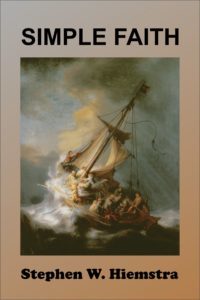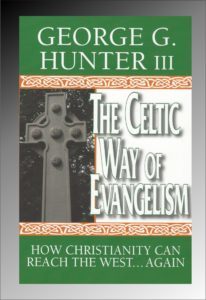Stephen W. Hiemstra's Blog, page 201
August 27, 2018
Monday Monologues: Priorities, August 27, 2018 (podcast)
 Stephen W. Hiemstra, 2017
Stephen W. Hiemstra, 2017By Stephen W. Hiemstra
In today’s podcast, I pray about the Journey and talk about Priorities.
To listen, click on the link below.
https://t2pneuma.net/wp-content/uploads/2018/08/Monday_Monologues_Priorities_20180827.mp3
After listening, please click here to take a brief listener survey (10 questions).
Monday Monologues: Priorities, August 27, 2018 (podcast)
Also see:
Monday Monologue On March 26, 2018
Other ways to engage online:
Author site: http://www.StephenWHiemstra.net, Publisher site: http://www.T2Pneuma.com.
Newsletter at: http://bit.ly/Sabath_2018
The post Monday Monologues: Priorities, August 27, 2018 (podcast) appeared first on T2Pneuma.net.
August 26, 2018
Prayer Journey
 By Stephen W. Hiemstra
By Stephen W. Hiemstra
Precious Savior,
Stay with me this morning
as the snow is all around and
I am not sure where to go.
Is it snow or is it just the morning fuzz in my eyes
fuzz that seems to take hold of me and hem me in
until I shake it off in the gym
Stay with me this afternoon
as I wander from task to task and from chat to chat.
Deepen my thoughts.
Raise my awareness.
Help to become a better companion.
Someone helpful on the journey, not someone just taking up space.
Stay with me this evening
as my strength flags and
my desire to push on grows extreme.
In the power of your Holy Spirit,
grant me that strength
and insights to create and cherish and share
before the night takes its toll
and I fade with the light.
In Jesus’ precious name, Amen.
Prayer Journey
Also see:
Giving Thanks
A Place for Authoritative Prayer
Other ways to engage online:
Author site: http://www.StephenWHiemstra.net, Publisher site: http://www.T2Pneuma.com.
Newsletter at: http://bit.ly/Sabath_2018
The post Prayer Journey appeared first on T2Pneuma.net.
August 24, 2018
God is My Denominator
 By Stephen W. Hiemstra
By Stephen W. Hiemstra
The postmodern era is rife with religious alternatives. In my hometown of Centreville, Virginia, we have several Hindu temples, several nearby Mosques, and, being near Washington DC, we have many devoutly secular people. It is still true, however, that most Americans still identify themselves as Christians.
Changing Christian Identity
Three out of four Americans have some Christian background, but only two in five Christians actively practice their faith. The good news is that the share of Christians who practice their faith has remained relatively stable over the generations. The decline in the share of nominal Christians, however, normally dominates the headlines. (Kinnamen and Lyon 2016, 27, 224)
Role of Faith
In her book, Anne Graham Lotz (2009, 1-2) recalls a story of a conversation that her mother, Ruth Graham, had with the former head of Scotland Yard. She suggested that he must have handled a lot of the counterfeit money over the years. He responded: “On the contrary, Mrs. Graham, I spend all my time studying the genuine thing. That way, when I see a counterfeit, I can immediately detect it.”
While most discussions of faith focus on its content and outward practice, it is helpful to view faith in terms of priorities. Citing Bruce Leafbald,1 Giglio (2003, 117) defines true worship as: “centering our mind’s attention and our heart’s affection on the Lord.” What do we really worship? Giglio (2003, 13) writes: “follow the trail of your time, your affection, your energy, your money, and your loyalty … [that] is what you [really] worship.” As the First Commandment reads: “You shall have no other gods before me.” (Exod 20:3)
If God is truly the first priority in your life, your faith becomes the denominator against which all other activities in life are measured. In money terms, its like the gold standard of the nineteenth century—all prices were measured in terms of the amount of gold required to make a purchase.
Idolatry as a False Priority
The Bible pictures idols as graven images or statutes, as when we read:
“Our God is in the heavens; he does all that he pleases. Their idols are silver and gold, the work of human hands. They have mouths, but do not speak; eyes, but do not see. They have ears, but do not hear; noses, but do not smell. They have hands, but do not feel; feet, but do not walk; and they do not make a sound in their throat. Those who make them become like them; so do all who trust in them.” (Ps 115:3-8)
But this view of idolatry is less helpful than to view idolatry as misplaced priorities. If something other than God is our first priority, then it is like trying to do business with counterfeit money—you may be able to fool a few people but pretty soon it will catch up to you. Idols invariably break.
What happens, for example, if your work is your number one priority and you become unemployed? Or if the spouse that you worship seeks a divorce? When you loose your job or your spouse that has been your idol, then you have lost not only your employment or spouse, but also your god. Idol destruction brings on an “existential crisis” accompanied by anxiety, depression, and potentially suicide, because the denominator that you measured everything else by now needs to be replaced.
Today’s Spiritual Crisis
The spiritual wanderlust that America is experiencing today starts with misplaced priorities—idolatry. Idol crashing creates a spiritual vacuum that may be filled by an infinite number of substitutes, but because we are created in the image of God (Gen 1:27), these idols cannot bring peace. Only God can fill this vacuum.
References
Giglio, Louis. 2003. The Air I Breathe. Colorado Springs: Multnomah Publishers.
Kinnaman, David and Gabe Lyons. 2016. Good Faith: Being A Christian When Society Thinks You’re Irrelevant and Extreme. Grand Rapids: BakerBooks.
Lotz, Anne Graham. 2009. Just Give Me Jesus. Nashville: Thomas Nelson.
Footnotes
1 Course entitled: “Introduction to Church Music”, Southwestern Baptist Theological Seminary, 1983. (Gigilio 2003, 140)
God is My Denominator
Also see:
A Roadmap of Simple Faith
Christian Spirituality
Looking Back
A Place for Authoritative Prayer
Other ways to engage online:
Author site: http://www.StephenWHiemstra.net, Publisher site: http://www.T2Pneuma.com.
Newsletter at: http://bit.ly/Sabath_2018
The post God is My Denominator appeared first on T2Pneuma.net.
August 21, 2018
Top 10 Book Reviews Over the Past 12 Months
 Art by Stephen W. Hiemstra
Art by Stephen W. HiemstraThe top book reviews on T2Pneuma.net have been familiar over a long period of time. James E. Plueddemann’s Leading Across Cultures has been the leader since it posted in 2014.
T2Pneuma. net first appeared online in September 2013.
Thank you for your support!
By Stephen W. Hiemstra
Title
Views
Date
Topic
Plueddemann Demystified Leadership Across Culture
80
3/31/2014
Missions
Stone and Duke Encourage Theological Reflection.
67
7/19/2016
Interpretation
Nouwen Describes Leadership Challenges
64
10/3/2017
Leadership
Nouwen: Make Space for Self, Others, and God
53
5/3/2016
Spirituality
Benner Cares Spiritually Through Dialogue—Part 1
33
8/17/2015
Spirituality
Gilbert Simplifies Family Systems Theory
29
3/18/2015
Counseling
Gagnon: Bridging the Bible and Gender Confusion, Part 1
27
6/22/2015
Interpretation
Nouwen: Be Mastered by the Holy Spirit.
27
3/24/2014
Faith
Murrow Invites Churches to be Man-friendly
25
4/29/2015
Mens issues
Vanhoozer: How Do We Understand the Bible? Part 3
21
4/20/2015
Interpretation
Top 10 Book Reviews Over the Past 12 Months
Also see:
Books, Films, and Ministry
Other ways to engage online:
Author site: http://www.StephenWHiemstra.net, Publisher site: http://www.T2Pneuma.com.
Newsletter at: http://bit.ly/Sabath_2018
The post Top 10 Book Reviews Over the Past 12 Months appeared first on T2Pneuma.net.
August 20, 2018
Monday Monologues: Creation, August 20, 2018 (podcast)
 Stephen W. Hiemstra, 2017
Stephen W. Hiemstra, 2017By Stephen W. Hiemstra
In today’s podcast, I pray about baptism and talk about creation.
To listen, click on the link below.
After listening, please click here to take a brief listener survey (10 questions).
https://t2pneuma.net/wp-content/uploads/2018/08/Monday_monologue_creation_08202018.mp3
Monday Monologues: Creation, August 20, 2018 (podcast)
Also see:
Monday Monologue On March 26, 2018
Other ways to engage online:
Author site: http://www.StephenWHiemstra.net, Publisher site: http://www.T2Pneuma.com.
Newsletter at: http://bit.ly/Sabath_2018
The post Monday Monologues: Creation, August 20, 2018 (podcast) appeared first on T2Pneuma.net.
August 19, 2018
Baptism Prayer
 By Stephen W. Hiemstra
By Stephen W. Hiemstra
Merciful Father,
We praise you for the day of our baptism
when Jesus washed away our sins and
we experienced the miracle of restoration and rebirth.
We confess that our salvation rests on nothing less that Christs death and righteousness. Forgive our weakness and sin.
We thank you for the many blessings of this life and the hope that you have given us through Jesus Christ.
Through the power of your Holy Spirit,
bring us back into communion with our true selves in Christ, even when we forget.
We ask you now that new souls will hear your call and submit to the baptism waters
that have given our souls rest and advance the day when you shall come again in victory.
In Jesus´precious name, Amen.
Baptism Prayer
Also see:
Giving Thanks
A Place for Authoritative Prayer
Other ways to engage online:
Author site: http://www.StephenWHiemstra.net, Publisher site: http://www.T2Pneuma.com.
Newsletter at: http://bit.ly/Sabath_2018
The post Baptism Prayer appeared first on T2Pneuma.net.
August 17, 2018
Arguments about Creation
 By Stephen W. Hiemstra
By Stephen W. Hiemstra
Discussions about the rationality of faith in the twentieth century invariably focus on the Genesis account of creation: its biblical interpretation, the Darwin discoveries, and the political context. Let me consider each in turn.
What Does Genesis Say?
The first chapter in Genesis paints a picture of God as divine creator who calls the universe into being with words spoken over a period of seven days. While much is made of God as a sovereign, king of kings, the language is not one of command, but of invitation: “Let there be.” God is a gentle sovereign who ruled by virtue of creative activity, not conquest nor purchase, nor chance, and in his first specific act of creation, created light—a metaphor for virtue (Gen 1:3).
The first verse offers a summary: “In the beginning, God created the heavens and the earth.” (Gen. 1:1) Who created? God created. When did he create? In the beginning. What did he create? Heaven and earth—everything.
This one verse radically changed the perception of time and space. In the Ancient Near East, the time that mattered was day and night, and the seasons—spring, summer, fall, and winter—that controlled the cycles of agriculture. The space that mattered was the boundaries on a particular kingdom or empire. Here in this verse, God stands outside of time and space creating both. There are no paths up the mountain to this god, because he transcends both. The god of Genesis must come down the mountain to us.
How do we know? The Genesis account comes to us as the confession of the church. In creating the universe ex nihilo (out of nothing), the god in Genesis is nothing like other gods of the Ancient Near East, which appeared more like today’s celebrities, movie stars, and athletes. God redefined what it meant to be a god.
Not only was he sovereign; he was completely free of the constraints of this world. When God told Moses from the burning bush: “I AM WHO I AM” (Exod 3:14), what he meant was: I am the real deal—a real god, not like the wish-fulfillment gods that Pharaoh created and that we create to serve our own needs.
The Darwin Discoveries
The nineteenth century brought amazing discoveries about our world in agriculture, manufacturing, science, and medicine. While authors like Marx and Freud likened religion to being on drugs and being delusional, Darwin stuck to his knitting in exploring the biological world taking stock of the fossil record and the diversity of species. Theorizing that ancient species of animals evolved into those that we see today, his theory of evolution quickly became viewed as a competing vision of the creation account in Genesis.
Political Uses of Evolution
From the spontaneous generation of life from inorganic compounds to the development of human species, Darwin gave Marxists and other secular religionists a creation account that erased God from the picture. National Socialists in Germany likewise picked up on Darwin’s survival of the fittest to posit the existence of a master race, the German folk, among humans. The attacks on the creation accounts in Genesis quickly elevated quickly into power politics on a world scale. If as Nietzsche philosophied, God is dead, then anything goes. With our gentle God out of view, the secular religionists quickly built concentration camps and fired up the gas chambers. Millions perished.
Returning to Genesis
Ironically, while Marx and Freud were atheists, Darwin was a practicing Christian. Think about it. God’s invitation in creation does not describe how the instrument of creation beyond the invitation. Borrowing a legal analogy, when Congress passes a law, it usually does not care how the President implements the law beyond offering resources and perhaps a target deadline. God could easily have used evolution to see to it that his invitation in creation takes place. When your father flicks on a light switch and announces—let there be light, you could say that he, like our Heavenly Father, has a sense of humor, even if it is a dad joke.
A Doubting Church
The problem in the nineteenth century arose as doubt in society seeped into the church. Rather than calling out Marx and Freud for slandering God and his church, the criticism sunk in. Some found refuge in philosophic defenses of God’s existence, while others labored to make sure that Christians experienced deep emotional experiences in the pews on Sunday with great music and a good sermon.
This adoption of Greek anthropology, separating thinking and emotions, weakened the church and mimicked stereotypes of men as thinkers and women as emotional. Without ritual, without deep teaching, without deep commitment and church discipline, the church acted as if the Bible were little more than a source of bedtime stories for the kids. Without moral training that recognizes the tension in practice between different theological principles, like purity of the church and evangelism, churches began to split over affinity to one theological principle over another.
Science in Service of Faith
The fascination with science peaked in World War II. With the invention of numerous instruments of mass destruction—mass bombings, napalm, death camps, nuclear weapons, and political uses of psychology and euthanasia—people woke up to the need for limits on scientific investigation.
Several aspects of science proved helpful in understanding our faith. One is to notice that the scientific method—felt need, problem definition, data collection, analysis, recommendations, responsibility bearing—starts with assumptions about what is needed. These assumptions about how our world works start with the words we use and our faith. Is it any wonder that numerous modern languages began with a translation of the Bible into the local dialect? The King James version of the Bible played that role in English; Luther’s Bible played that role in German.
The Big Bang theory of creation started from measurement of the direction and speed of partials in space that point to a partial time and place where the known universe began with a singularity—a single point. In an instant, the entire universe came into being. No one can say why, but the evidence that it happened is written in the stars. And guess what? The confession of the church in Genesis is completely consistent with this theory from science.
Who has the better story? Which story would you rather live into?
Arguments about Creation
Also see:
A Roadmap of Simple Faith
Christian Spirituality
Looking Back
A Place for Authoritative Prayer
Other ways to engage online:
Author site: http://www.StephenWHiemstra.net, Publisher site: http://www.T2Pneuma.com.
Newsletter at: http://bit.ly/Sabath_2018
The post Arguments about Creation appeared first on T2Pneuma.net.
August 14, 2018
Hunter: Celtic History Defines Missions
 George G. Hunter III. 2000. How Christianity Can Reach the West…Again. Nashville: Abingdon Press.
George G. Hunter III. 2000. How Christianity Can Reach the West…Again. Nashville: Abingdon Press.
Review by Stephen W. Hiemstra
Anthropology intersects theology in ways that can be unfamiliar and fascinating. Take the concept of the soul, which loosely translates into the modern concept of identity. Your soul consists of body, mind, and spirit, but it also includes those you are in relationship with—including God. Yet, you may find yourself in relationship with people that you have never met, like unfamiliar family members and people that inspire you. For me, Saint Patrick falls into this latter category.
Introduction
George Hunter’s book, The Celtic Way of Evangelism, begins with a startling premise:
“Most Western Church leaders would never guess that ancient Celtic Christianity could show the way today [to evangelize postmodern (‘neo-barbarian’) people] for two reasons. First, they assume that no expression of ancient Christianity could be relevant to the challenges we now face. Second, they assume that the only useful stream of insight is, by definition, confined to Roman Christianity and its Reformation offshoots.”(10)
When I first read this statement about Celtic Christianity, I was dismissive—having Irish blood in me, I am not accustomed to hearing much of anything positive about Ireland, its language (Gaelic), or its history. Hunter changed my mind about all of this.
The Story of Saint Patrick
I knew, however, that Saint Patrick (Fifth century AD) was the first successful evangelist in Ireland—before Patrick, the Irish were believed to be unreachable barbarians. His success was not anticipated because Patrick, as a teenager sixteen-year old, was kidnapped by Irish pirates and sold as a slave in Ireland. For the next six years he worked as a slave caring for his master’s cattle in the Irish wilderness. Later, he escaped and traveled abroad to study to become a priest. Much later, he returned to Ireland as the church’s first missionary bishop and evangelized the Irish out of love for them. His love of the Irish was obvious and his evangelism focused on offering hospitality. In the end, Patrick and his companions planted more than seven hundred churches in Ireland (Hunter 2000, 13-23).
Celtic Versus Roman Evangelism
Saint Patrick approached evangelism in Ireland differently than the typical “Roman”approach. Hunter writes:
“Bluntly stated, the Roman model for reaching people (who are ’civilized’ enough) is: (1) Present the Christian message; (2) Invite them to decide in Christ and become Christians; and (3) If they decide positively, welcome them into the church and its fellowship. The Roman model seems very logical to us because most American evangelicals are scripted by it!…
[by contrast the] Celtic model for reaching people: [is] (1) You first establish community with people, or bring them into the fellowship of your community of faith. (2) Within fellowship, you engage in conversation, ministry, prayer, and worship. (3) In time, as they discover that they now believe, you invite them to commit.”(53)
The first church that I interned in employed the Roman model and the second employed the Celtic model, where ironically Spanish, not Gaelic, was the primary language spoken.
Contextualization
In the second church where I interned, the attitude towards church differed fundamentally from the first church. The first church was a steeple church built in the 1950s who had trouble adapting to the changing culture of the community around it, which was increasingly Hispanic and Korean. As the Angelo congregation grew older, the church experienced a financial crisis with the death of each member, but the form of worship and the ethnic makeup of the congregation did not change and new members primarily entered the church on their own volition. The second church met in a business park, added a Hispanic service, and frequently met off-campus in the community, growing primarily through addition of members who became acquainted with the congregation through its community outreach.
In discussing indigenization or contextualization, Hunter observes that “The Christian faith never exists except as ‘translated’ into a culture.”(77) This translation is often a literal translation into the local dialect, but it also entails understanding the cultural experience of God. In the Irish case, this meant that priests needed to cut their hair differently, to emphasize the immanence of Christ more than God’s transcendence, to build churches out of wood rather than stone, and to grow closer to nature, which recognized the Irish proclivity to experience God’s creation.
In Briton, earlier efforts to offer a Roman version of Christianity quickly went apostate once Roman domination was removed, in part, because it did not resonate with local culture (79). Hunter defines culture “as the learned pattern of beliefs, attitudes, values, customs, and products shared by a people.”(100) Defined as such, it is easy to see why the attitude of millennials towards church differs fundamentally from boomers—they differ culturally from their parents in substantive ways.
Outline
Hunter writes in seven chapters preceded by a preface and followed by notes, bibliography, and an index. The chapters are:
“The Gospel to the Irish
A New Kind of Community, A New Kind of Life
To the Picts, the Anglo-Saxons and Other ‘Barbarians’
The Celtic Christian Community in Formation and Mission
How Celtic Christianity Communicated the Gospel
The Missionary Perspective of Celtic Community
The ‘Celtic’ Future of the Christian Movement in the West”(v)
From this listing it is obvious that Hunter covers more ground than can be summarized in a short review.
Assessment
George Hunter’s The Celtic Way of Evangelism, which I read in seminary and again for this review, touched me deeply when I first read it because of my Irish roots and ignorance of them. As a seminarian, I quickly realized that the institutional church that I was part of mostly followed the Roman style of evangelism and Roman attitude towards those outside the church. While I coveted working in the Roman system, it never quite fit my call to ministry. As such, reading Hunter’s book introduced me to the ministry that I had done ever since. Thus, for me, this was an important, life-changing book.
Hunter: Celtic History Defines Missions
Also see:
Books, Films, and Ministry
Other ways to engage online:
Author site: http://www.StephenWHiemstra.net, Publisher site: http://www.T2Pneuma.com.
Newsletter at: http://bit.ly/Sabath_2018
The post Hunter: Celtic History Defines Missions appeared first on T2Pneuma.net.
August 13, 2018
Monday Monologues: Evidence of God’s Existence, August 13, 2018 (podcast)
 Stephen W. Hiemstra, 2017
Stephen W. Hiemstra, 2017By Stephen W. Hiemstra
In today’s podcast, I pray against entropy and talk about evidence of God’s existence.
To listen, click on the link below.
After listening, please click here to take a brief listener survey (10 questions).
https://t2pneuma.net/wp-content/uploads/2018/08/Monday_Monologues_Gods_Existence_08062018.mp3
Monday Monologues: Evidence of God’s Existence, August 13, 2018 (podcast)
Also see:
Monday Monologue On March 26, 2018
Other ways to engage online:
Author site: http://www.StephenWHiemstra.net, Publisher site: http://www.T2Pneuma.com.
Newsletter at: http://bit.ly/Sabath_2018
The post Monday Monologues: Evidence of God’s Existence, August 13, 2018 (podcast) appeared first on T2Pneuma.net.
August 12, 2018
Prayer Against Entropy
 By Stephen W. Hiemstra
By Stephen W. Hiemstra
Merciful Father,
I praise you for your unchanging character,
your immutability in the face of erosion, pain, and death
for your love conquers all foes,
from the sting of war to the impurity of common dust
that brings disease and biting insects and filth.
I confess that I pale in the present of even tiny obstacles
and fear is a constant companion.
Forgive my timidity, my cowardliness as strength fails me.
In the power of your Holy Spirt,
Instill in me your wisdom and strength to face the day
that I might minister to those around me
and grant me courage to live the life that you intended.
In Jesus precious name, Amen.
Prayer Against Entropy
Also see:
Giving Thanks
A Place for Authoritative Prayer
Other ways to engage online:
Author site: http://www.StephenWHiemstra.net, Publisher site: http://www.T2Pneuma.com.
Newsletter at: http://bit.ly/Sabath_2018
The post Prayer Against Entropy appeared first on T2Pneuma.net.



